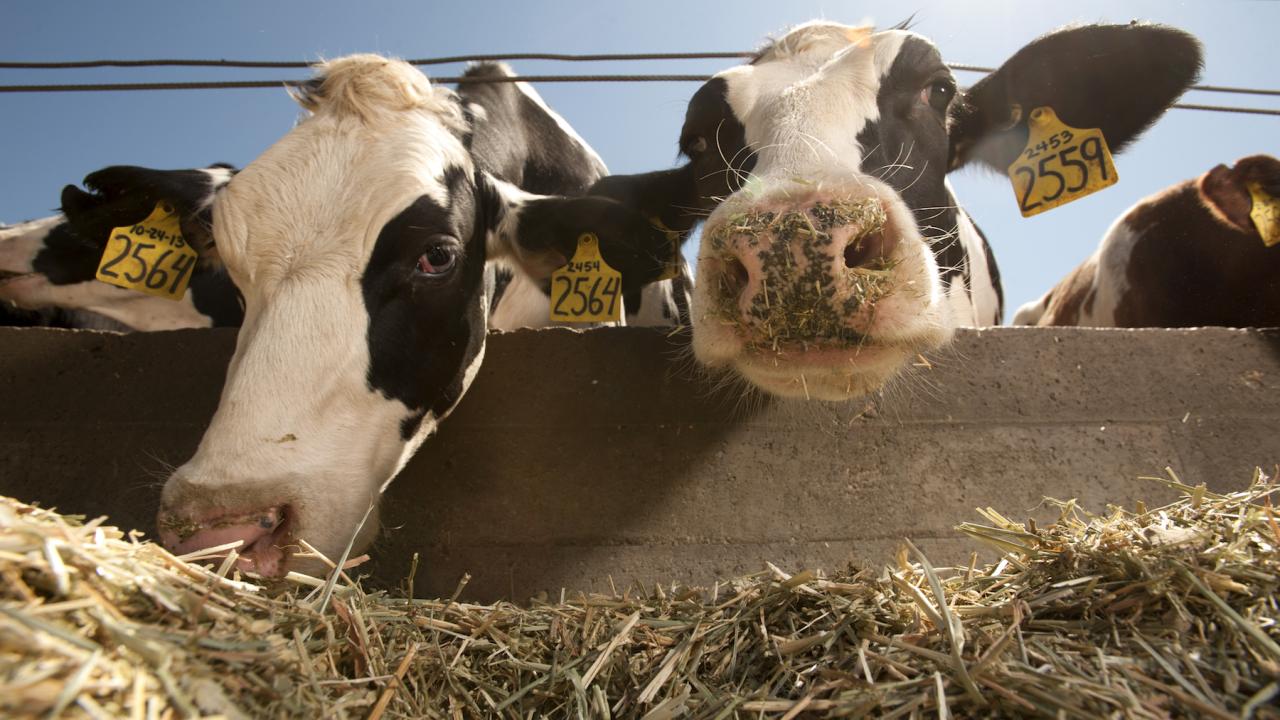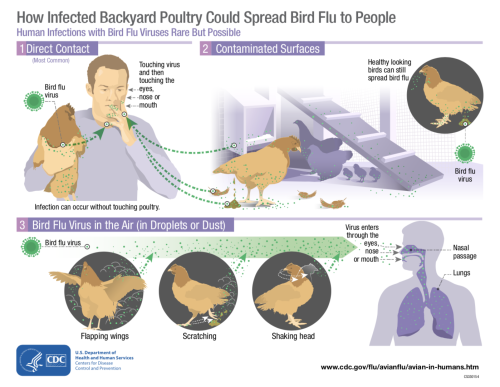
Limiting Farmworker Exposure To Bird Flu
There are many different types of influenza, or flu, viruses. One strain of flu—known as bird flu, Highly Pathogenic Avian Influenza, or H5N1—is specific to birds. However, bird flu is now making other animals, including mammals, sick. Bird flu has impacted commercial poultry flocks across the U.S., and dairy cows in some states have recently contracted the virus. This means that farmworkers who work with poultry or dairy cows could be exposed to bird flu.

Can people get bird flu?
Yes, people can contract bird flu. Currently, the risk to the general public is very low. However, the risk to farmworkers is higher than the general public because farmworkers may come in contact with sick animals as part of their job. People can contract bird flu from infected animals if the virus that causes bird flu gets into a person’s eyes, nose, or mouth. To date, there have only been three human cases in the U.S. and symptoms have been mild. The individuals who contracted bird flu were working with sick animals and they recovered.
What are the symptoms of bird flu and how is it treated?
The symptoms of bird flu in humans are similar to the regular flu. Symptoms include eye infection, sore throat, cough, sneezing, runny nose, fatigue, muscle aches, diarrhea, and fever. Though the symptoms have been mild in the three cases in the U.S., bird flu has caused more serious illness and death in other countries. Because illness can be severe, it is important to protect workers in close contact with sick animals.
If someone working on your farm has flu symptoms, that person should go to the doctor and isolate from other individuals. If a bird flu infection is confirmed, the local health department should be notified. Bird flu can be treated using regular flu medicine prescribed by a doctor. The flu vaccine does not protect against bird flu.
How do I keep farmworkers healthy on my farm?
Prevention is the best way to protect farmworkers. It is recommended that farmworkers coming in contact with sick animals and their environment wear full personal protective equipment (PPE). This includes goggles, N95 masks, gloves, head coverings, gowns, and shoe covers. Farmworkers should avoid contact with secretions and feces of sick and dying animals as well as contaminated surfaces. Farmworkers should wash their hands thoroughly with soap and water after working with sick animals or their environment. California employers must have procedures in place to protect workers from exposure (see the Cal/OSHA regulation here).
Resources
- Q&A: What you need to know about bird flu in humans
- Cal/OSHA regulation §5199.1. Aerosol Transmissible Diseases – Zoonotic
- Recommended PPE English / Spanish
- Bird flu in cattle fact sheet English / Spanish
- Graphic explaining how bird flu can spread from birds to people
- Tracking cases in animals
- Recommendations for farmworkers in milking parlors English / Spanish
- Safety messages English / Spanish
- Bird Flu Exposure Prevention - Employer Checklist
- Bird flu information for employers in Hmong
- Bird flu information for employers in Punjabi
- Information for workers in Hmong
- Information for workers in Punjabi
